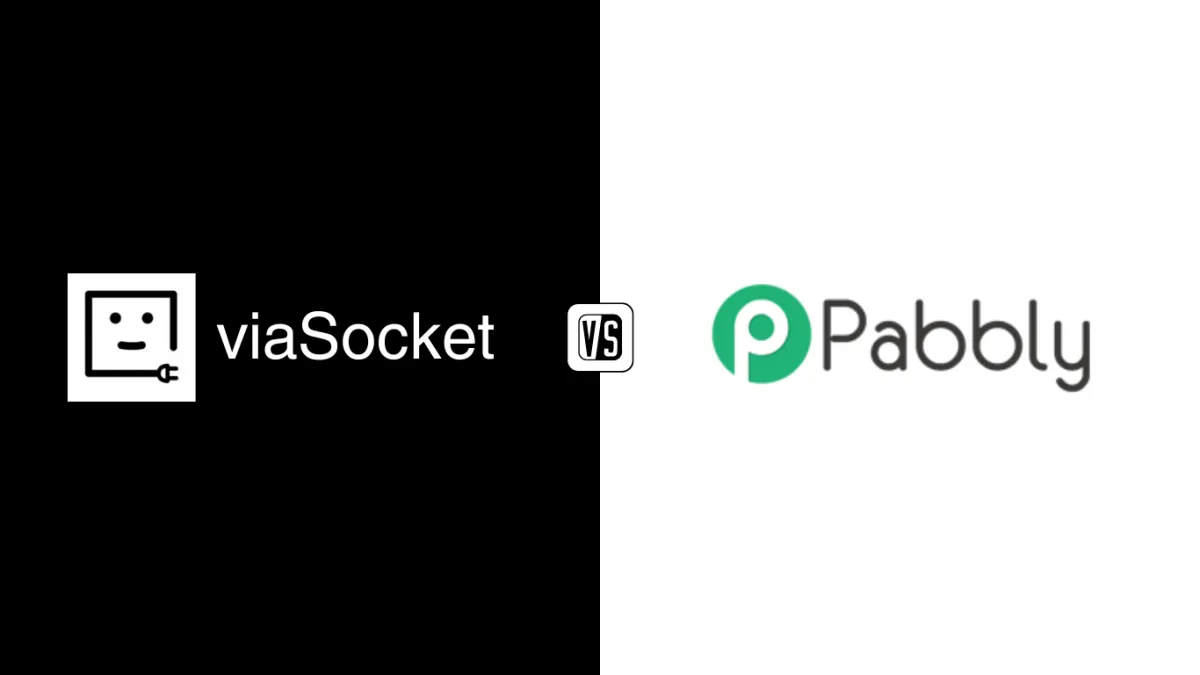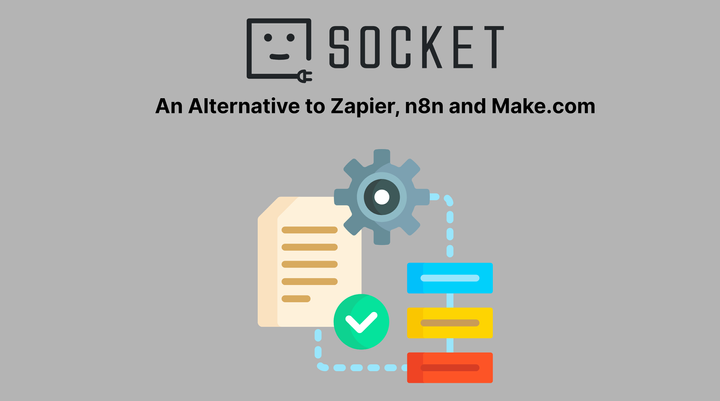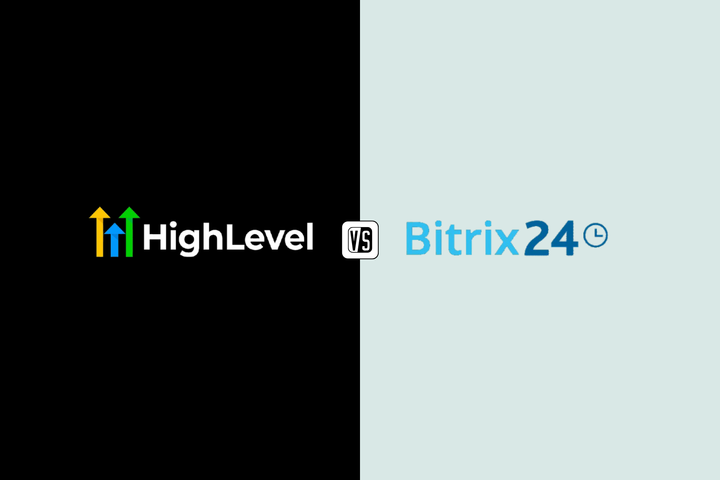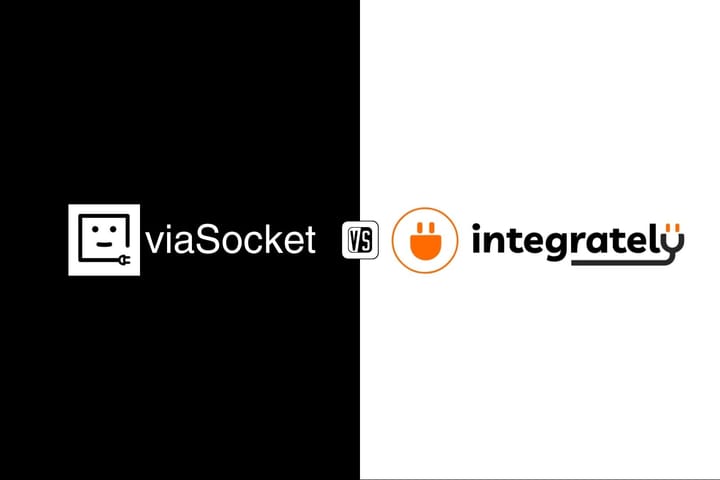viaSocket vs Pabbly

1. viaSocket provides Tables, Pabbly does not offer a comparable Tables feature
With viaSocket Tables, users can organize their data into tables, making it easier to manage and view. Users can create various views from these tables, allowing for better organization and accessibility of data.
viaSocket's Tables seamlessly integrate with workflows. Users can directly incorporate data from these tables into their workflows, streamlining the automation process.
viaSocket's Tables can be integrated with Interface. Interface allows users to create forms and landing pages. This integration ensures that the data collected through forms and landing pages is centralized within the tables, making it convenient for users to access and manage.
viaSocket's Tables helps users keep their data related to workflows centralized, enhancing organization and efficiency in data management tasks.
2. viaSocket provides Ask AI to create workflows using Artificial Intelligence. Pabbly does not offer AI for workflows
Leveraging AI technology, viaSocket ensures that setting up workflows is accessible to users of all skill levels. Ask AI simplifies the workflow creation process, enhancing productivity and efficiency by removing barriers to entry.
Ask AI enables users to create workflows effortlessly by providing prompts in simple English such as specifying the triggers and actions or what they want to create workflows for and Ask AI will set up their workflows, streamlining the process of workflow creation.
Ask AI goes a step further by assisting users in writing custom JavaScript codes for their workflows. This allows users who are not proficient in JavaScript coding to incorporate advanced customizations into their workflows with ease.
3. viaSocket provides workspace memory, a virtual database that stores data in JSON format, Pabbly does not offer a comparable memory feature
viaSocket’s workspace memory functions as a virtual database capable of storing data in JSON format. Users can incorporate this tool into their workflows to store data at any step, providing flexibility and customization in data management.
One of the significant advantages of viaSocket's workspace memory is its ability to allow users to access stored data across different workflows. This enables seamless integration and sharing of data between multiple workflows, enhancing efficiency and consistency in data management.
4. viaSocket offers access to include Custom Variables and Custom JavaScript codes in all its plans. While Pabbly offers these features only in their Ultimate plan, which is their most expensive plan
viaSocket provides all its features and in-built tools without any limits on usage on all its plans. This means that users can leverage these advanced features regardless of their subscription tier, ensuring flexibility and inclusivity.
While Pabbly restricts access to Custom Variables and Custom JavaScript codes to its Ultimate plan, which is the most expensive tier. Users subscribed to lower-tier plans may not have access to these advanced features, potentially limiting their ability to customize workflows and tailor them to their specific requirements. This could pose challenges for users who require advanced customization options but are constrained by budget considerations.
5. viaSocket counts 30 seconds of flow execution as one invocation, whereas Pabbly counts each Action you set up as One Task
This means that irrespective of the number of actions within the workflow, if the execution time falls within a 30-second window, it will be considered as one invocation. This approach allows users to optimize their workflows for efficiency without worrying about excessive invocation charges for short executions.
On the other hand, Pabbly counts each action set up within a workflow as one task. As a result, users may encounter higher task counts depending on the complexity and number of actions within their workflows.
For example, if you have a workflow in Pabbly that creates Trello cards for new deals in Pipedrive and notifies your sales team about them on Slack, it's counted as two tasks.
So, if you create 50 deals on Pipedrive in a day, and each deal triggers this workflow, then it will be counted as 50*2= 100 tasks.
On the other hand, viaSocket counts 30 second flow execution as 1 invocation. The same workflow discussed above will be counted as 50 invocations in viaSocket which is way more affordable than Pabbly.
6. 10,000 free invocations vs 100 free tasks/ per month
When it comes to free usage, viaSocket offers 10,000 free invocations compared to Pabbly's 100 free tasks.Moreover, Pabbly charges $13.73 for 10,000 tasks. This means viaSocket's free plan offers more flexibility and opportunities for users to explore and use the platform without worrying about costs.



